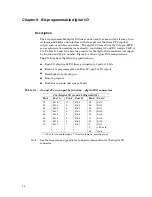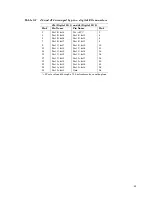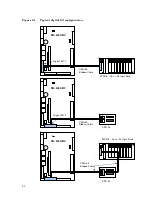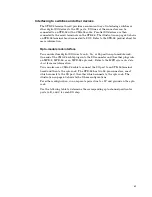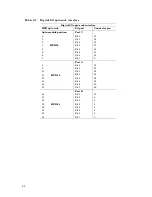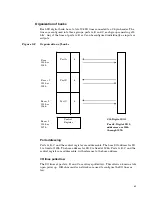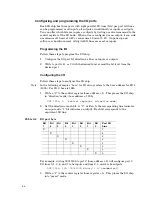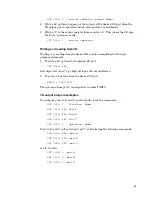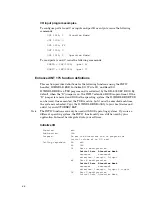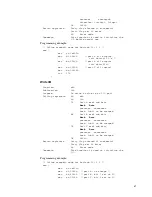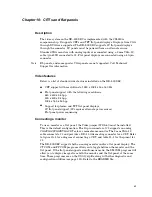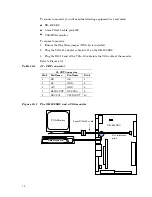
Chapter 8: External drives
Description
The XE–800 SBC is compatible with any standard IDE hard drive that has a 16-bit
IDE interface. This includes CD-ROMs, CompactFlashes, and other IDE-
compatible drives. The BIOS supports all IDE devices so no additional software is
needed.
UltraDMA modes are not supported directly by the XE–800. These modes require
an 80-pin connector, and there is no adapter available for the 44-pin, 2mm IDE
connector used on the XE–800.
Note
The BIOS supports three IDE devices (which includes a CompactFlash).
Hard disk controller
The XE–800 SBC supports three 16-bit IDE devices. Since the CompactFlash is
connected to the primary IDE channel with a dedicated IDE controller, additional
IDE devices connected through J4 will show up in Setup as secondary IDE devices
(master and slave).
Standard IDE devices such as hard drives and CD-ROM drives are interfaced via a
44-pin connectors at J10. For those IDE devices that use a 40-pin interface, use the
Octagon Systems IDE cable, #4080 or #6246.
UltraDMA modes are not supported directly by the XE–800. These modes require
an 80-pin connector, and there is no adapter available for the 44-pin, 2mm IDE
connector used on the XE–800.
IDE combinations:
2 hard drives
1 hard drive and 1 CD-ROM drive
CompactFlash and either of the above combinations
Master/slave designation for IDE devices
IDE devices have a jumper or a switch that designates whether the device is a
master or a slave device. If only one device is connected to a port, it must be
configured as a master. If two devices are connected, one must be configured as a
master and one as a slave. The XE–800 does not use the CS signal (Cable Select) to
designate master or slave on a multi-connector cable. You can use BIOS Setup to
designate either the master or the slave as a boot device.
55


















